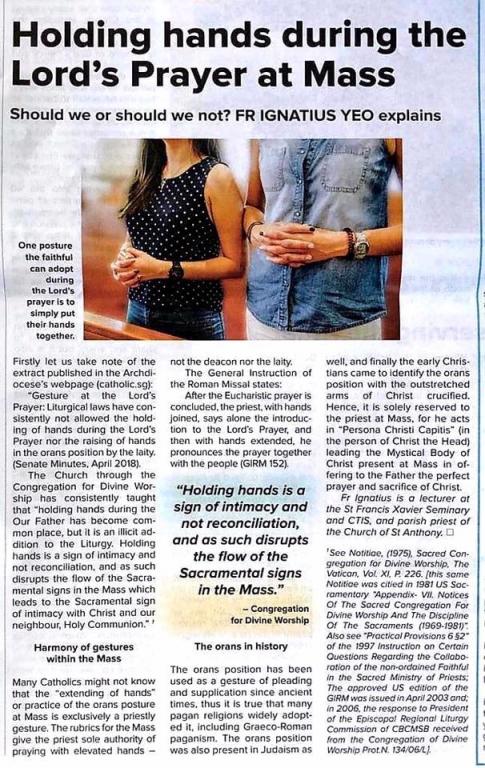I admit, I too have a pet peeve with the English translation of the Nicean-Constantinopolitan Creed. My issue pertains to a particular use of the term “man”. In the current translation, we hear “By the power of the Holy Spirit he was born of the Virgin Mary and became man“. Here’s a simple question: how many Catholics in the pews each week think that they are saying that Jesus the Christ became incarnate as a male? That might be factually accurate, but it is not what the Creed says, it is not the truth that Nicea wishes to teach. Deriving from anthropos in Greek, and homo in Latin, the word that underpins this text is gender-neutral, and really means “human”. What the Fathers of Nicea wished to say was that Christ became one of us. English does not have such a term, and “man” was used traditionally to denote an encompassing vision of humanity. Today, more people are inclined to read “male”. Should not we strive for a better translation?
Here’s something that puzzles me: that sub-group of Catholics that are most insistent on an accurate translation of the texts into English are those same Catholics who often recoil in horror at this suggestion on the grounds that it is “liberal” (and there’s that infamous word again!) device to introduce feminist “gender-neutral” language into the liturgy. No, sorry, I simply want the English translation to accurately translate anthropos. And whether you like it or not, the word “man” simply is not as encompassing as it used to be.












